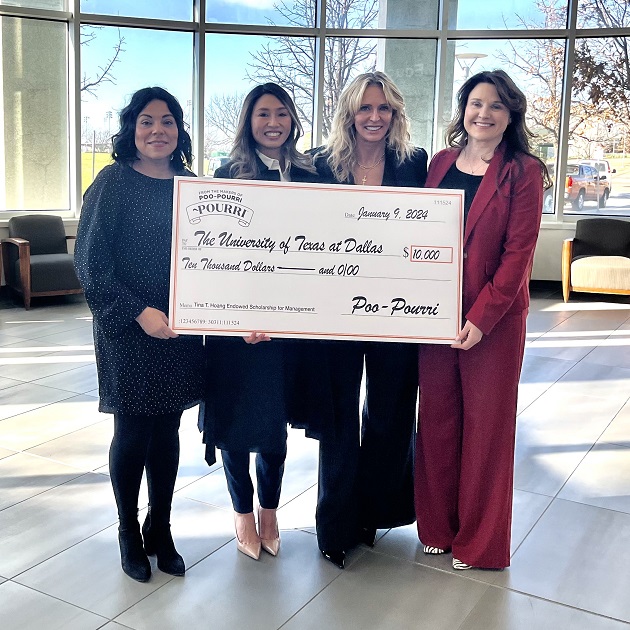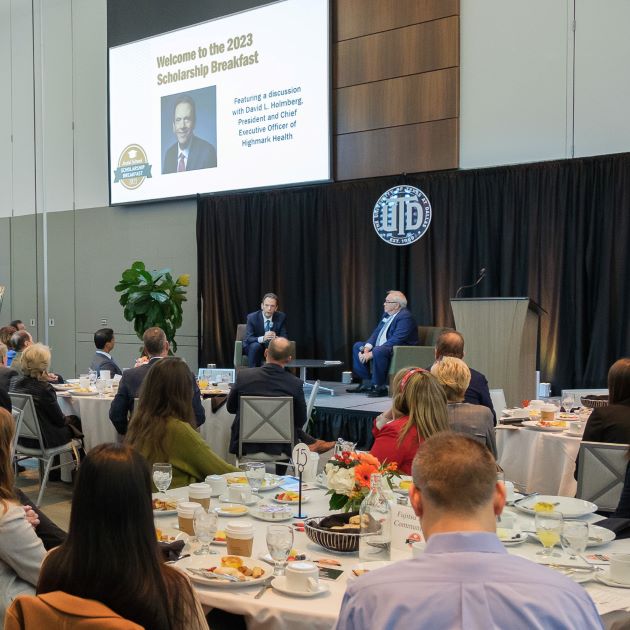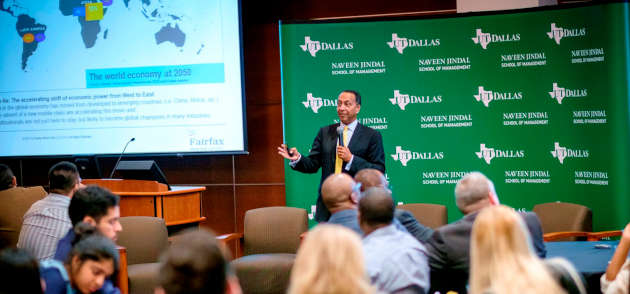
A standing-room-only audience of businesspeople, faculty and students filled the Naveen Jindal School of Management Executive Education Dining Room Oct. 30 for a “Business in Africa” conference that examined “Trade and Investment, Sustainability and Social Impact and Why the United States is Falling Behind.”
The conference was co-hosted by the Jindal School and Global Chamber Dallas, and speakers, who included faculty members and the chairman of an U.S.-based investment company that specializes in Africa shared potential opportunities and enthusiasm for doing business there.
Keynote speaker Zemedeneh Negatu, chairman of the Virginia-based Fairfax Africa Fund, zeroed in on Ethiopia as the country with the fastest-growing economy in Africa this year.
Showing a map of the African continent at night, Ethiopia-born Negatu pointed out it was mostly without lights. This, he said, was no reason not to invest but instead was a reason for energy companies to see potential. He said it was an example for many industries to follow: “Don’t turn off — help turn on the lights of possibility when it comes to Africa.”
Negatu also pointed out that China’s investment in Africa is one signal to him that the United States risks getting left behind by ignoring this growing continent, which exceeds one billion in population. “Africa today accounts for only 4 percent of global [gross domestic product],” he said. “By 2050, it will be 12 percent That’s a substantial increase of Africa’s importance to the global economy.”
During the evening, Hubert Zydorek, director of the BS in Global Business program and Center for Global Business at the Jindal School, shared plans for future JSOM involvement with the continent.
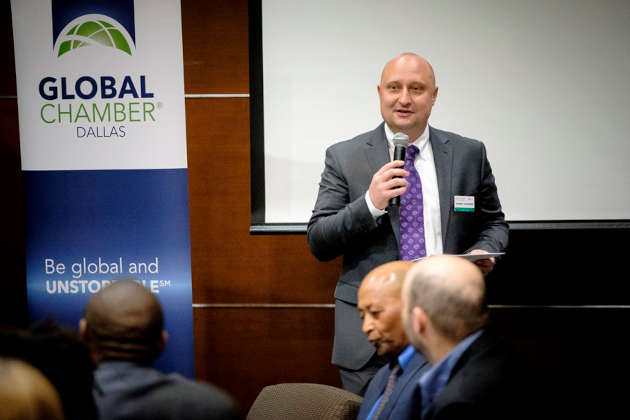
“We plan to do a trip to Africa next summer, it’s in the works, and we’re hoping actually to do a little bit more project-based learning in Ethiopia and develop more contacts in Uganda, Kenya and Rwanda and other parts of the African continent,” he told the crowd. “We want you to come and support us any way you can. … Companies who do business in Africa, we want them to step ahead with us and work with us in creating this project-based learning in Africa.”
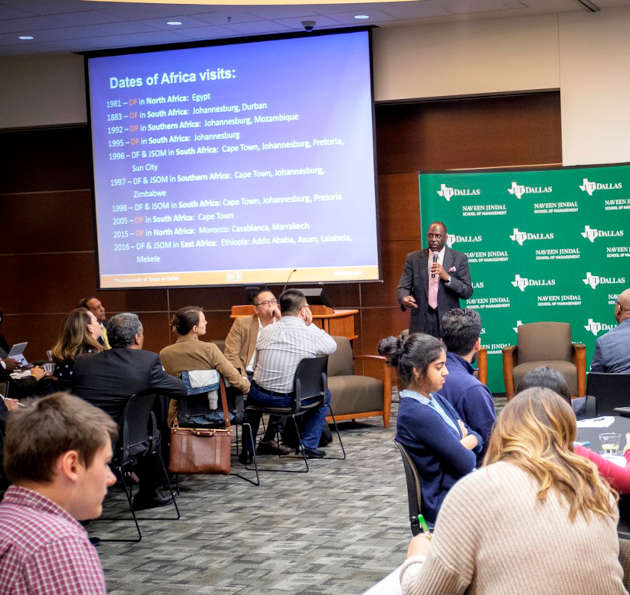
Dr. David L. Ford Jr., emeritus professor of organizations, strategy and international management, reminded the audience that the school already has experience with the continents: as early as a 1981 trip to Egypt and as recently as a 2016 trip to East Africa.
Spirited music filled the dining hall as Ford showed images of past trips, showing a mix of exposure to culture and business.
“Remember, these trips we’re working on, just like in the past, don’t have to be just for students,” he said. “They can be for businesspeople and the community. If people are going to embark on business there, an early part of it is going. See the opportunities for yourself.”
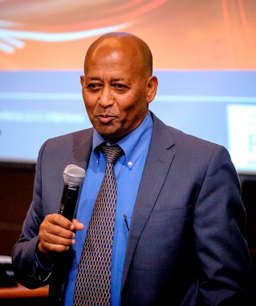
Negatu agreed with Ford. “Start with facts,” he said. “Learn as much as you can. People in Africa want to know you’ve taken the time to understand how they live and what their culture is about. And the differences between countries or even within a country.
“Also, can you handle having the water off sometimes or electricity sometimes not working? It’s as much about your own limits as anything else. Also, network. That could be working with [a nongovernmental agency]. Learn from the people who have run it, and you might find jobs and lots of potential.”
Dr. Habte Woldu, director of the MS in International Management Studies program at the Jindal School, believes part of the journey can even begin before you ever enter the continent.
“It can start as simply as meeting people from Africa here in Dallas,” Ethiopia-born Woldu said. “You’ll be surprised by how many want to share their experiences. Making up your mind from what you just think you know about Africa can really hold you back. Spend some time with people who understand the place firsthand. For that, you don’t even need a plane ticket to get you started. …You just need an open mind.”




